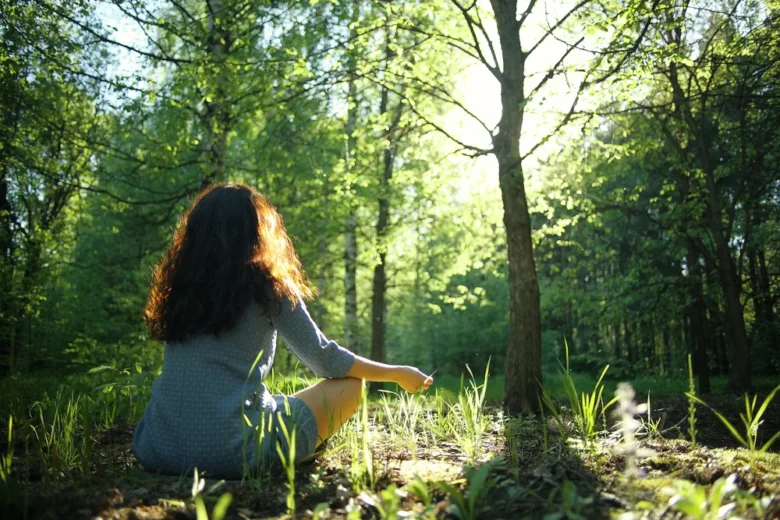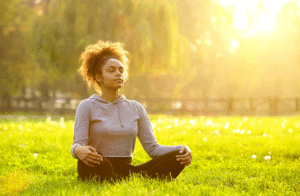Feeling stressed, anxious, or just a little melancholic? Sometimes the simplest answers are the best. Getting outside and enjoying the fresh air can have significant benefits for your physical and mental health. The idea that nature can influence your mood isn’t just a myth; it’s scientifically proven. Spending time outdoors can make you feel better—it’s a natural and simple way to boost your mood and find inner peace. This article combines scientific research with practical advice to explore how nature and fresh air can effectively improve your mood.
The Science Behind It
There’s a wealth of evidence that nature benefits your brain health. Spending time in nature can help your brain function better in several ways. One of the most important is that it lowers cortisol levels, the body’s primary stress hormone. Researchers have found that even a short time in a green environment can lower cortisol levels and make you feel more relaxed. Furthermore, exposure to sunlight helps your body produce vitamin D, which is essential for a stable mood. A vitamin D deficiency can often lead to depression. Fresh air provides more oxygen than indoors. This helps your brain function better and increases serotonin, the feel-good chemical.
Mental Health Benefits
Outdoor activities have numerous mental health benefits. Research shows that being in nature can help people stop worrying—that is, stop thinking negatively about themselves. One study found that people who walked for 90 minutes in a natural environment showed less activity in the brain areas associated with these negative thought loops than those who walked in an urban environment. This practice, often called “ecotherapy,” is becoming recognized as an effective way to relieve anxiety and sadness. Being outdoors, listening to birdsong, admiring trees, and smelling the moist earth can also be a form of mindfulness, allowing you to briefly forget your worries and return to the present moment.
Physical Health Benefits
Fresh air and nature are not only good for your brain but also for your body, which is closely linked to your mood. Outdoor activities, even something as simple as a walk in the park, can get you moving. Exercise releases endorphins, a chemical that makes you feel better and relieves pain. Outdoor activities can also improve your sleep. During the day, exposure to natural light helps regulate your body clock, also known as your circadian rhythm. This makes it easier to fall asleep at night and wake up refreshed. Better sleep, in turn, can significantly impact your mood and mental performance during the day.
How to Enjoy Nature
You don’t have to plan a wilderness trip to enjoy nature. It’s easy to incorporate some time outdoors into your daily routine. Even if it’s just in a nearby park, you can take a walk during your lunch break. If you’re working from home, try opening the windows for some fresh air. Planting a small garden, or simply adding a few plants to your balcony, can bring a touch of nature into your daily routine. Consider planning a walk, bike ride, or picnic on the weekend. The most important thing is to get outside every day, even if it’s just for 15 to 20 minutes. Every little bit helps.
How to Feel Better
Engaging consciously in nature is a great way to improve your happiness and overall health. The fresh air, sunshine, and tranquility of nature make it an ideal place to relax and escape the stresses of everyday life. By understanding the science behind it and finding simple ways to integrate nature into your daily routine, you can gain a free and practical tool for improving your physical and mental health. If you’re feeling overwhelmed, getting outside might just be the best thing you can do for yourself all day.
FAQs
1. How long do I need to spend outside to feel better?
Research shows that even 10 to 20 minutes in a natural environment can significantly improve my mood and reduce stress. To maximize the benefits, you should spend at least two hours a week.
2. Does the natural environment I’m in matter?
Research shows that places with greater biodiversity, such as forests or parks with rich flora and fauna, have a greater positive impact than any green space. However, municipal parks or backyards can have the same effect.
3. Can looking at photos of nature provide the same benefits?
Looking at photos or videos of nature can briefly make you feel better and reduce stress. However, it doesn’t provide a full sensory experience or the health benefits of being in nature, such as sunlight and fresh air.
4. What if I live in a city with few parks?
Even in the city, you can still connect with nature. Seek parks, community gardens, or tree-lined streets. Adding plants to your home or business can also create a more natural and peaceful space.
5. Is it better to exercise or just sit outside?
Both have their pros and cons. Exercising outdoors improves your mood and health because it combines the benefits of both. However, sitting quietly and paying attention to what’s happening around you can be a good way to relieve stress and clear your head.




